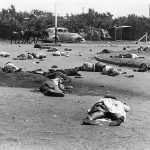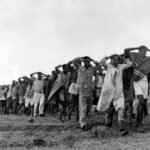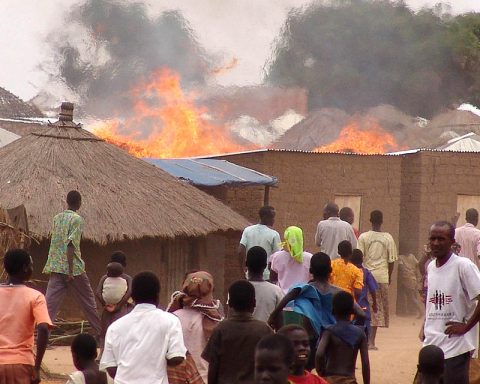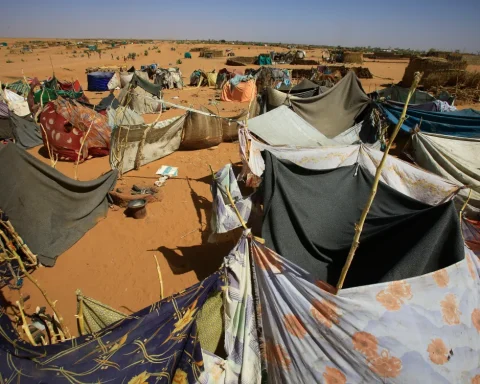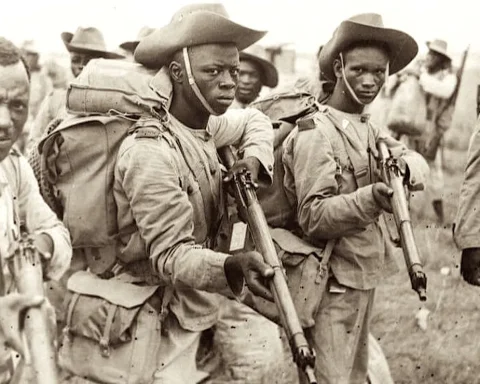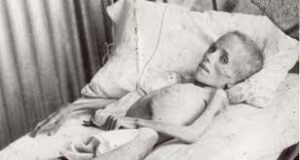
While it’s alleged that Adolf Hitler, when he was Chancellor of Germany, introduced the first concentration camps in March 1933, it’s not well known how the first time the word “concentration camp” was first used; it was about how the British carried off a whole nation and locked them up. This was the first option by oppressors in power and how much death these concentration camps brought about was more than the death toll of the men who fought in the Anglo-Boer war.
Between 1899 and 1902, the British government established concentration camps in South Africa. This was to serve as housing for the Boer families after Britain had invaded the territory.
The British had employed a scorched earth policy to destroy everything useful to the Boer people, which in this case was their lands, destroying their crops, killing their animals, burning their homes and forcefully moving tens of thousands of men, women and children to the concentration camps.
This time, the British targeted a whole nation, and numerous entire regions had been depopulated. The British erected 45 tented camps for Boer internees and built about 64 additional camps for black Africans. About 150,000 Boer refugees and 115000 black Africans were taken into the camps.
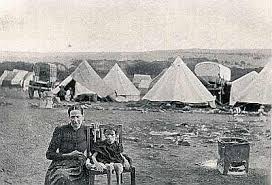
28,000 Boer men were captured as prisoners of war, and over 25,000 were sent overseas, leaving mainly women and children in the Concentration Camps.
Due to neglect, poor hygiene, bad sanitation, the health of the captives suffered greatly, and the inconsistency in the supply of all things, the food given was always meagre. The two-tier allocation policy, whereby families of men who were still fighting were routinely given smaller rations than others, only made matters worse.
Over 26000 Boer women and children died from malnutrition and contagious Diseases such as measles, typhoid, malaria and dysentery. Seeing the inadequate shelter, poor diet, bad hygiene and overcrowding, a delegate of the South African Women and Children’s Distress Fund, Emily Hobson, who visited some of the camps, condemned the unfair treatment.
Emily Hobson’s outrage spurred the creation of the Fawcett union to investigate the claims. The Fawcett union, to the dismay of the Parliament, confirmed Emily Hobson’s report. Sir Henry Campbell-Bannerman, who was the British Liberal Party leader, declared them ‘methods of barbarism’. This pressure forced the authorities to do better, and the death rate fell; however, this couldn’t undo the fact that over 46000 of these people had died, most of them being children.
In 1901, the British came up with a new policy of leaving displaced Boer families to fend for themselves in the hope that this would increase the burden of the Boer commandos, and they become more disinterested in freedom fighting.
In recent times, it’s gone undocumented how bad the Anglo-Boer war was. War is never easy; women were raped, and the numerous horrors that went on in the concentration camps aren’t accurately documented.
Before all these happened, in West of the Transvaal, 400 Boers allied with David Massouw, leader of the Koranna Khoisan tribe, when they invaded and took a piece of land, which they declared the Republic of Stellaland; the first president was Gerrit Jacobus van Niekerk. The town of Vryburg was established and declared its capital. In 1883, The Republic of Stellaland united with The State of Goshen to form the United States of Stellaland.

